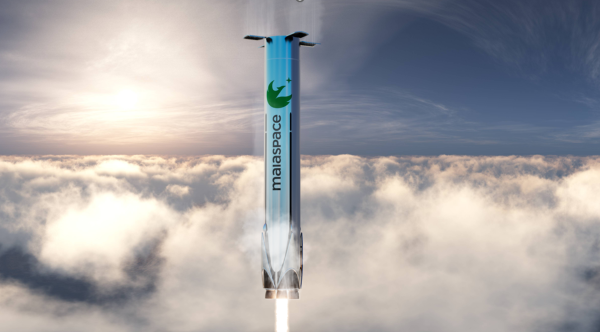
PARIS–MaiaSpace, a subsidiary ArianeGroup created to design a minilauncher, has started partial tests of its Maia rocket, CEO Yohann Leroy said today.
On a prototype of the second stage, the first filling and draining tests of cryogenic propellants took place late in July, he explained during a panel discussion at the World Satellite Business Week. The trials are taking place at ArianeGroup's Vernon production and test facility, in Paris' western outskirts. The manufacturing of a second prototype of the upper stage has started. Hot fire tests are planned for 2024.
Maia is relying on the 1,000-kN Prometheus engine, which ArianeGroup has been developing for several years with cost reduction and reusability in mind. Maia will use three Prometheus on its first stage and one on its upper stage. Prometheus is throttleable, meaning its thrust level can be controlled. As for propellants, liquid oxygen was retained but Ariane's usual liquid hydrogen is replaced with methane.
The optional Colibri kick stage is also undergoing component-level tests. That includes tanks, structures, valves, the attitude control system and unspecified engines. Comparable to a small third stage, Colibri is targeting an increase of the launcher’s performance and additional flexibility, as it will deliver payloads into specific orbits. It can support a 3.5-m-dia. fairing.
Maia's payload capacity to low Earth orbit will depend on whether the first stage is recovered or not. If not, it will stand at 1,500 kg (3,300 lb). If the first stage is to be reused, the launcher will offer only 500 kg, as fuel has to be reserved for the recovery phase.
Are those numbers an incentive for the customer to choose Maia as expendable? “Keep in mind that, if you have a 500 kg payload and want to benefit from the [expected lower cost of the] 1,500 kg capacity, you need the launcher to be full before you launch,” Leroy said. The strength of micro- and minilaunchers is their ability to place an individual small payload into orbit according to the customer's schedule, without waiting for other payloads.
Created in 2022 and now employing 100, MaiaSpace is aiming for an inaugural orbital flight late in 2025. Commercial operations will follow in 2026. The first recovery of the main stage is planned for 2026, too. To meet the aggressive schedule, design engineers have adopted an approach where the launcher is not optimal from day one. “Optimization can come later,” Leroy said. ArianeGroup is giving a large degree of autonomy to its new offshoot, he added.
